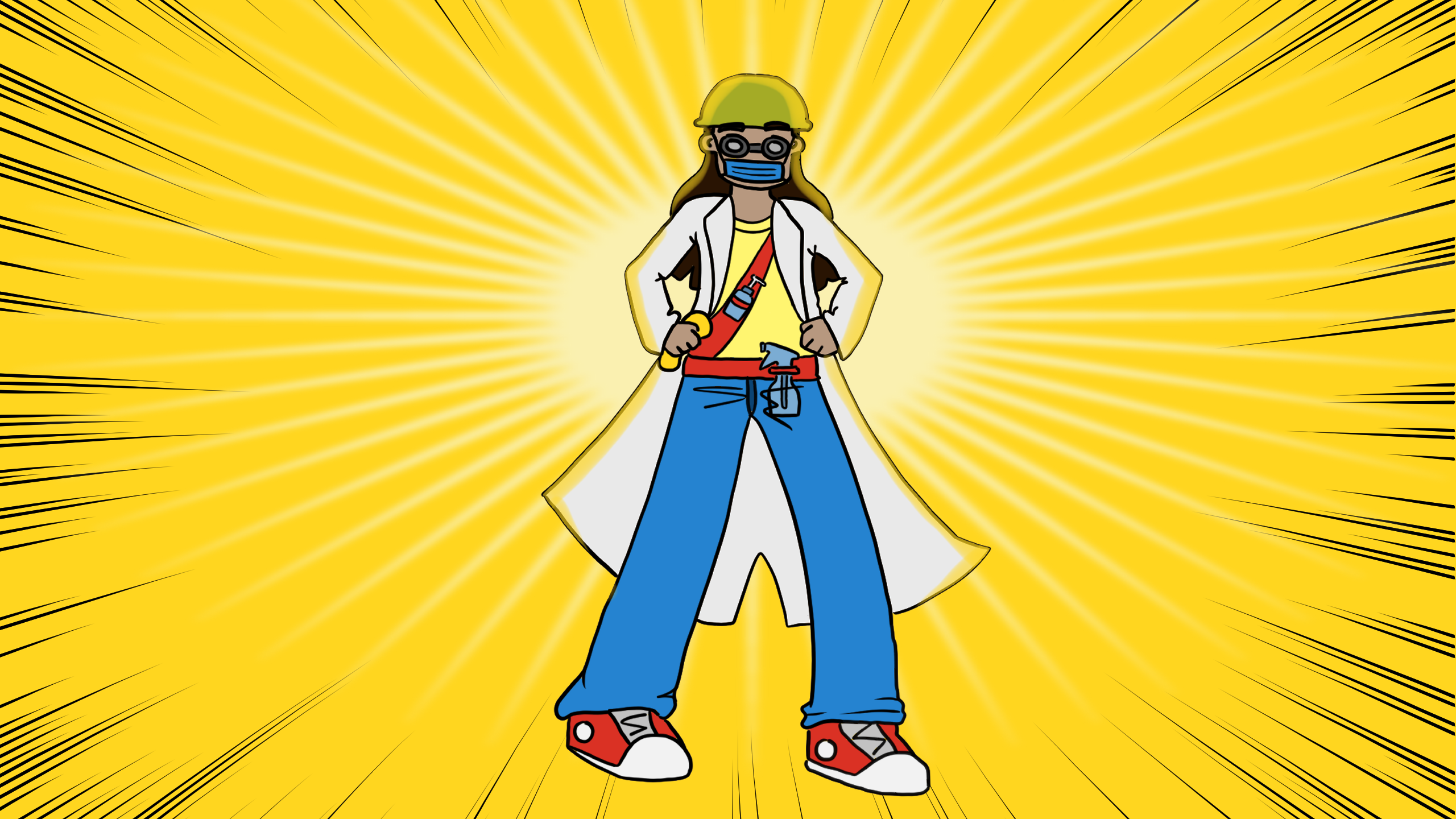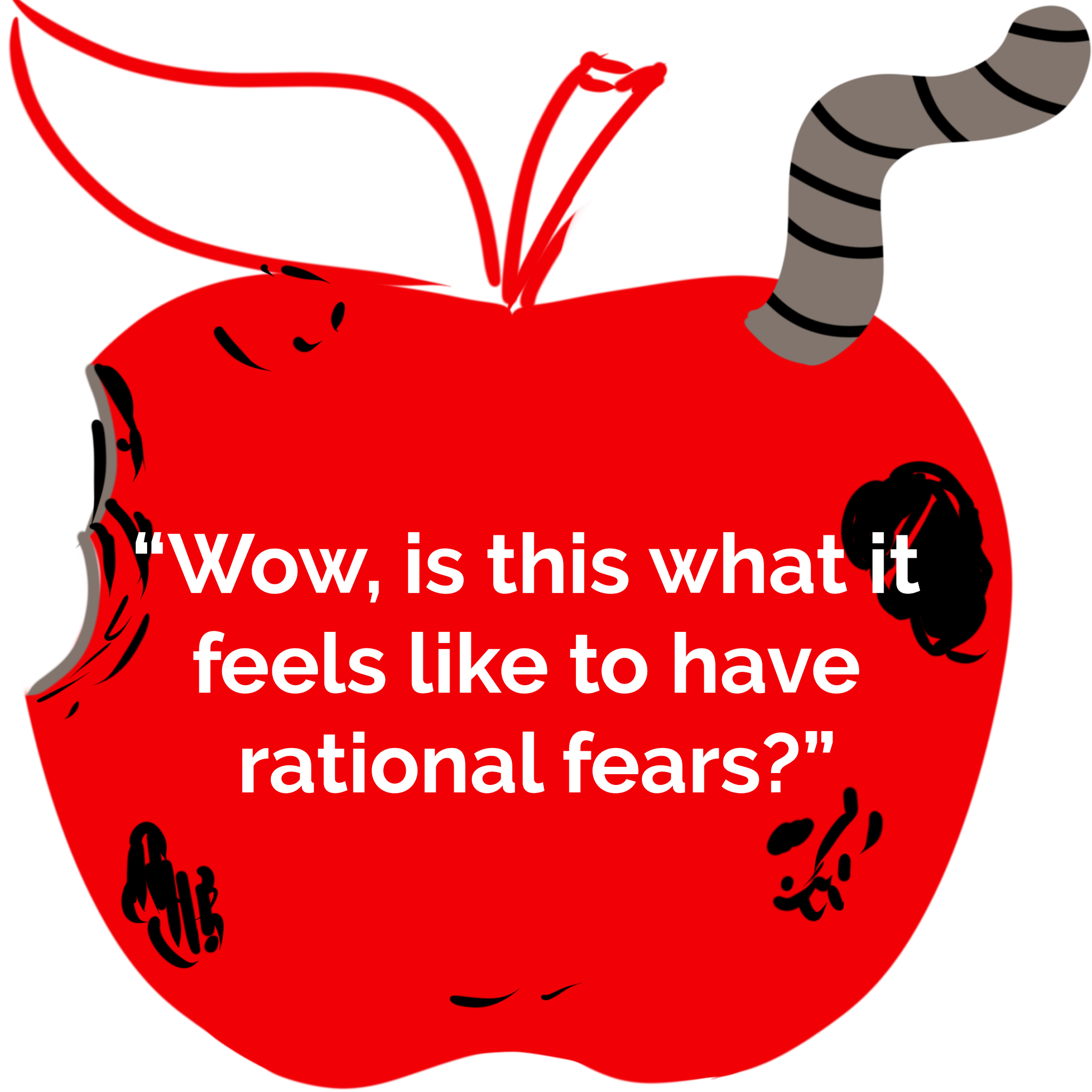
By Dhriti Gupta | Illustration: Jes Mason

By Dhriti Gupta | Illustration: Jes Mason

By Dhriti Gupta | Illustration: Jes Mason

By Dhriti Gupta | Illustration: Jes Mason
With the TTC regularly disinfecting their subway cars, Clorox wipes flying off the shelves to the point of supply chain problems and automatic hand sanitizer stands getting installed all across the city, it’s safe to say COVID-19 has revolutionized how we view hygiene and sanitation.
For many Ryerson students, adjusting to proper sanitation methods has been a challenge. In the case of second-year sociology student Kare Lass it’s been particularly taxing, especially during the weekly parties she hosts in her Pitman Hall residence for her 20 closest friends.
“We have to wipe down the door knobs, sanitize the bong, disinfect the keg—it’s exhausting to have to take all these precautions and it’s really started to take a toll on my mental health,” Lass said. “But it’s reassuring to know I’m doing my part to help stop the spread of the virus within my social bubble.”
Lass said she’s been cautious outside of the party environment as well by choosing to only engage in self-care safely. She had to make the tough decision to appropriate Indian culture at a hot yoga studio just once a month instead of the usual twice a week. When asked if she was concerned about the studio advertising the classes as “maskless mindfulness,” Lass just laughed. “Of course not, the steam kills the COVID, obvi! Besides, all this sanitizing has really unaligned my chakras—I need to go.”
But for a select group of students, adjusting to pandemic standards of cleaning hasn’t really been an issue. Third-year architecture student Joe Cidi has been living with Obsessive Compulsive Disorder (OCD) since he was 10 years old. He said the disorder has equipped him with years of preparing for “Literally the worst case scenario.”
“Other than the crippling rationalization of all my worst fears, I’m doing pretty great! I’ve been sanitizing since day one, so honestly not much has changed,” he said, while whipping out the turquoise rubber Purell holder attached to his backpack by a carabiner. “You know I keep that MF thang on me.”
Cidi finds that the pandemic has made his morning, afternoon, evening, before-breakfast, after-lunch and post-dessert routines of disinfecting his phone, doorknob, laptop, soap dispenser, every key on his piano and dog a lot easier.
With the TTC regularly disinfecting their subway cars, Clorox wipes flying off the shelves to the point of supply chain problems and automatic hand sanitizer stands getting installed all across the city, it’s safe to say COVID-19 has revolutionized how we view hygiene and sanitation.
For many Ryerson students, adjusting to proper sanitation methods has been a challenge. In the case of second-year sociology student Kare Lass it’s been particularly taxing, especially during the weekly parties she hosts in her Pitman Hall residence for her 20 closest friends.
“We have to wipe down the door knobs, sanitize the bong, disinfect the keg—it’s exhausting to have to take all these precautions and it’s really started to take a toll on my mental health,” Lass said. “But it’s reassuring to know I’m doing my part to help stop the spread of the virus within my social bubble.”
Lass said she’s been cautious outside of the party environment as well by choosing to only engage in self-care safely. She had to make the tough decision to appropriate Indian culture at a hot yoga studio just once a month instead of the usual twice a week. When asked if she was concerned about the studio advertising the classes as “maskless mindfulness,” Lass just laughed. “Of course not, the steam kills the COVID, obvi! Besides, all this sanitizing has really unaligned my chakras—I need to go.”
But for a select group of students, adjusting to pandemic standards of cleaning hasn’t really been an issue. Third-year architecture student Joe Cidi has been living with Obsessive Compulsive Disorder (OCD) since he was 10 years old. He said the disorder has equipped him with years of preparing for “Literally the worst case scenario.”
“Other than the crippling rationalization of all my worst fears, I’m doing pretty great! I’ve been sanitizing since day one, so honestly not much has changed,” he said, while whipping out the turquoise rubber Purell holder attached to his backpack by a carabiner. “You know I keep that MF thang on me.”
Cidi finds that the pandemic has made his morning, afternoon, evening, before-breakfast, after-lunch and post-dessert routines of disinfecting his phone, doorknob, laptop, soap dispenser, every key on his piano and dog a lot easier.


“It’s really validating to see people step into your shoes for once,” he said. “I see others showing their solidarity—wiping down their groceries, disinfecting their mail—and no longer feel ashamed in indulging the most vulnerable and toxic parts of my psyche!”
A study published in June by Psychology Today found that there has been a significant uptick in the number of people who have self-reported OCD symptoms since the onset of COVID-19. The influx of self-reported instances has led experts to create two sub-categories of OCD to differentiate the new cases from the standard ones.
Group A tends to suffer from a wider range of chronic, uncontrollable, reoccurring thoughts and/or behaviors that they feel the urge to repeat over and over, sometimes to the point of debilitation. Experts say members of this group engage in these tendencies to exert a false sense of control over the deep-rooted sense of anxiety that seeps into nearly every aspect of their lives.
Group B consists of those who feel compelled to verbally assert that they are “so OCD,” when carrying out behaviours like quirkily vacuuming their room or simply being in the presence of a ruler. They tend to also form their entire identity around colour-coordinating their closets and being “such a Virgo.” However, according to head researcher of the study, Dr. Chutup Yudontavosedi, members of this group are mostly just “insufferable.”
Second-year psychology student Roo Teene, a member of subcategory A, first realized she had OCD in Grade 2. To her surprise, it was actually not normal to feel the need to count every single hair on her Polly Pockets’ heads.
Teene has found that the pandemic has helped her come to terms with living with her mental illness.
“It’s actually awesome because now I don’t even have to think up new ways to keep my family safe! Literally I feel so validated, like, I’d like to see my therapist TRY to tell me that washing my hands won’t prevent the ones I love from dying,” she said. “Goodbye impostor syndrome! Wow, is this what it feels like to have rational fears?”
Teene also looks forward to the impacts that COVID precautions will have on everyday life even after the pandemic is over.
“I won’t have to share my drinks anymore! Like, no Jessica, you actually can’t have a sip of my strawberry mimosa—we just came out of a global pandemic and also your boyfriend has mono!”
With the COVID numbers in Ontario recently exceeding 1,000 cases in one day and the government back to enforcing Stage 2 restrictions in virus hotspots like Toronto, Ottawa and Peel Region, there’s one thing that keeps students like Teene and Cidi going.
“It all comes down to a complete lack of hope and having absolutely no faith in things ever getting better,” said Cidi. “I’m able to stay positive because truly, no matter how bad things are, the hell that is the inside of my brain will always, always be worse!”
Disclaimer: This story was written and edited by folks living with OCD.
Congratulations! If you’re reading this, you’ve made it to the end of the article. Full disclosure: none of what you just read is real. It was satire. Satire is a noun that describes the use of humour, irony, exaggeration, or ridicule to expose and criticize people or institutions.
“It’s really validating to see people step into your shoes for once,” he said. “I see others showing their solidarity—wiping down their groceries, disinfecting their mail—and no longer feel ashamed in indulging the most vulnerable and toxic parts of my psyche!”
A study published in June by Psychology Today found that there has been a significant uptick in the number of people who have self-reported OCD symptoms since the onset of COVID-19. The influx of self-reported instances has led experts to create two sub-categories of OCD to differentiate the new cases from the standard ones.
Group A tends to suffer from a wider range of chronic, uncontrollable, reoccurring thoughts and/or behaviors that they feel the urge to repeat over and over, sometimes to the point of debilitation. Experts say members of this group engage in these tendencies to exert a false sense of control over the deep-rooted sense of anxiety that seeps into nearly every aspect of their lives.
Group B consists of those who feel compelled to verbally assert that they are “so OCD,” when carrying out behaviours like quirkily vacuuming their room or simply being in the presence of a ruler. They tend to also form their entire identity around colour-coordinating their closets and being “such a Virgo.” However, according to head researcher of the study, Dr. Chutup Yudontavosedi, members of this group are mostly just “insufferable.”
Second-year psychology student Roo Teene, a member of subcategory A, first realized she had OCD in Grade 2. To her surprise, it was actually not normal to feel the need to count every single hair on her Polly Pockets’ heads.
Teene has found that the pandemic has helped her come to terms with living with her mental illness.
“It’s actually awesome because now I don’t even have to think up new ways to keep my family safe! Literally I feel so validated, like, I’d like to see my therapist TRY to tell me that washing my hands won’t prevent the ones I love from dying,” she said. “Goodbye impostor syndrome! Wow, is this what it feels like to have rational fears?”
Teene also looks forward to the impacts that COVID precautions will have on everyday life even after the pandemic is over.
“I won’t have to share my drinks anymore! Like, no Jessica, you actually can’t have a sip of my strawberry mimosa—we just came out of a global pandemic and also your boyfriend has mono!”
With the COVID numbers in Ontario recently exceeding 1,000 cases in one day and the government back to enforcing Stage 2 restrictions in virus hotspots like Toronto, Ottawa and Peel Region, there’s one thing that keeps students like Teene and Cidi going.
“It all comes down to a complete lack of hope and having absolutely no faith in things ever getting better,” said Cidi. “I’m able to stay positive because truly, no matter how bad things are, the hell that is the inside of my brain will always, always be worse!”
Disclaimer: This story was written and edited by folks living with OCD.
Congratulations! If you’re reading this, you’ve made it to the end of the article. Full disclosure: none of what you just read is real. It was satire. Satire is a noun that describes the use of humour, irony, exaggeration, or ridicule to expose and criticize people or institutions.
